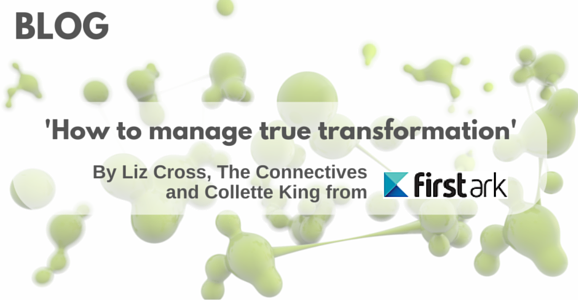HOUSING SECTOR CASE STUDY:
Glass Forward mentoring programme encourages diversity
Nationally, some 64% of all employees in the housing sector are women, compared with 46% across all UK sectors, but just over a third are board members and only 14% of chief executives of the 100 largest housing associations (HAs) are female.
Having recognised the very limited diversity among post holders in senior HA roles in the North West, Housing Diversity Network (HDN) and Airport Group, a subgroup of its Manchester-based membership, decided to invest in an innovative and tailored solution to address the issue. Together they called upon the expertise of The Connectives, which designed and delivered a programme called Glass Forward in the North West and such was its success, it has now been rolled out across the North.
Ian Gregg, who was chair of HDN at that time and director of communities and investment at Parkway Green Housing Trust said: “The Connectives is a team that not only has a wealth of experience in the housing association sector and a solid reputation for championing women in construction, but also the experience and credibility to perform at board level. For these reasons we knew we could rely on the team to help us find a different way of developing talent and removing glass ceilings.”
Working alongside Ian, The Connectives began by identifying that while the HA sector recognises the importance of diversity, there is still too small a number of women and BME leaders populating senior roles. Like other sectors, there will be some barriers and system constraints but equally the Connectives expertise suggested that many people are wrestling with their own glass ceiling, preventing themselves from reaching director or chief executive level. Together, they agreed that Glass Forward would be the ideal vehicle to encourage and develop a more diverse group of senior leaders in the HA sector to include women and BMEs.
Speaking about Glass Forward, Ian said: “It surfaces the difference in the perceptions held by men and women. Men might go for a job when they’re only 50% confident of doing it - they’ll overstretch themselves - whereas a woman may think she must be 100% confident to go for it. It’s about recognising what holds people back...it might be the difference between getting that director’s job next time and the chief executive’s job the time after that, or not.
“When we decided to ring in the changes, we wanted to work with people who could partner us in a pilot to find different ways of developing talent inside individuals, organisations and sectors. This meant those with shared values and a track record of challenging inequality across many fronts, so The Connectives fitted the bill perfectly.
“The Connectives do things differently and more creatively than other consulting providers; they had real insights and expertise to explore the reasons that glass ceilings exist at an individual level and explore the issues affecting behaviour that sit ‘below the water line’ including self-image, personality, values and motives.”
The process started with a diagnostic comprising psychometrics and interest inventories of both mentor and mentee, to ensure a successful and impactful match based on complimentary and sometimes contrasting traits. An orientation session then followed, allowing the mentors and mentees to get to know each other and the gain a full understanding of the programme and their commitments.
Following this, the focus was put on cultivating skills, knowledge and personalised career development through individual assessment, feedback, master classes and action learning sets.
The Glass Forward programme comprises at least three mentoring sessions (to identify issues/barriers to career aspirations and practical problem solving using the mentor as a sound board); three master classes (for mentors and mentees based on three themes identified in the diagnostic process as making a leader successful at senior level - influencing; communication/leveraging language for the right impact and strategic networking); and finally, three action learning sets where mentees shared learning and good practice working on real workplace issues.
To assess the success of the Glass Forward pilot, The University of Salford undertook a formal, independent evaluation of the programme, which it commended for showing self-improvement and development among mentees.
The report concluded that the diagnostic tools used to match mentors and mentees facilitated a deep awareness of personality traits, motives and values, rather than focussing on the demographics and characteristics of participants, meaning fundamental issues could be surfaced and explored. It also said there was strong evidence from participants that these matters, rather than superficial characteristics, influenced self-image and ultimately affected behaviour. The findings concluded that participants could explore any self-limiting thought patterns, any recurring habits/approaches or styles enabling them to develop the confidence and courage not only to take career opportunities, but also to create them.
The Glass Forward pilot was funded by the Airport Group, an alliance of 15 stock transfer housing associations in the North West, but a second and third cohort has been funded by nominating organisations. In total 36 individuals have either graduated or are currently being mentored by chief executives and other senior leaders, empowering them to move up and on to new roles either inside or outside of their original organisation or bigger, more enhanced roles.
Commenting on his experience of Glass Forward, Tim Pinder, chief executive at Peaks & Plains Housing Trust said: “In the past, when we’ve had feedback from staff surveys, one thing that’s cropped up is that people want the opportunity to develop and to plan their careers - we've not always been able to meet those requirements.
“During the assessment process there was an opportunity for mentees to choose whether they wanted a mentor with a similar approach to themselves, or one who had strengths in an area where there was a bit of a gap for themselves.

